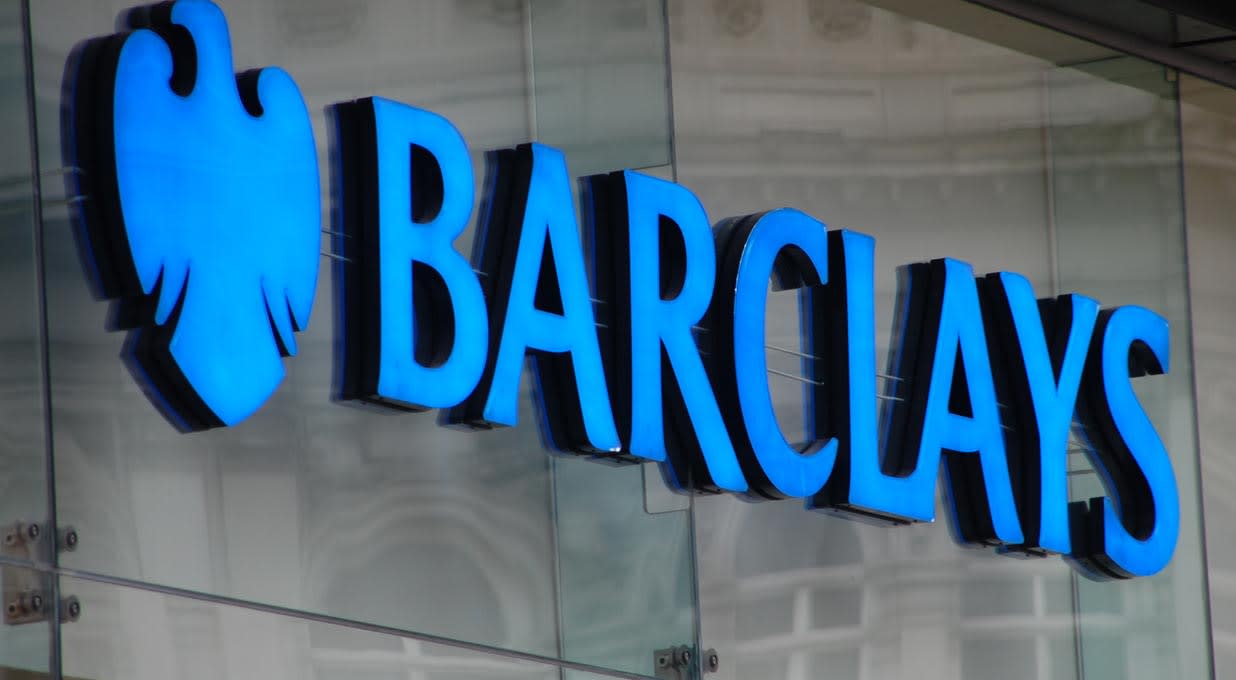Barclays reported a 5% rise in third quarter income to £6.6bn. Performance broadly positive across divisions, with the UK and Investment Banking arms growing, offset by US consumer where exchange rates were a drag.
Profit before tax rose 18% to £2.2bn, better than the £2.0bn expected. The beat was driven by better income than expected and lower impairments, which came in at £374mn (£452mn expected).
The CET1 ratio, a key measure of capital levels, moved from 13.6% to 13.8% over the quarter (target range 13-14%).
Guidance for net interest income, excluding the Investment Bank and Head Office, has been improved from £11bn to greater than £11bn.
The shares rose 2.8% in early trading.
Our view
Barclays has squeezed out a profit beat over the third quarter after better-than-expected impairments and a good grip on costs.
There are a few moving parts to operations, but looking to the UK, we’ve seen savers shifting to higher rate, longer term, savings accounts over the past few quarters – bad for banking profit. But that shift is now slowing, and we think the bulk of the account swapping is behind us.
The mortgage market's also been a headwind for most banks, but that’s now broadly behind us too. Add in the ongoing benefit from the structural hedge (essentially a bond portfolio that should yield higher returns as older contracts mature), and there are reasons to be optimistic about UK interest income into 2024 and beyond.
But Barclays is a well-diversified business, and the UK's just one part. It's also one of the largest global investment banks and has a sizeable US credit card business.
Higher rates along with increased US credit card balances, have been a tailwind, but it can be a double-edged sword. Default rates on US credit cards have trended higher in recent quarters, though they stabilised in the most recent period. But while loan losses are still expected to be below levels seen last year, reserves are being tapped. This is an area to watch over the coming quarters.
The large investment bank is one of Barclays’ key differentiators and a driving force behind new medium-term targets. As we saw with some of the US giants, the long-awaited recovery in investment banking fees is starting to show its face. Trading activity in both the equity and debt markets is also looking good, but there’s intense competition and US peers did see better growth in equity markets over the recent quarter. Barclays will need to work hard to keep pace with key US rivals.
The balance sheet is well capitalised and guidance points to £10bn in distributions over 2024-26, weighted toward buybacks. That’s a little under 30% of Barclay’s current market cap. It’s ambitious and no returns are guaranteed.
Barclays has had a material re-rating over the year so far. We think much of that is justified with the depressed levels seen for much of the past couple of years being unwarranted. From here, in our view, questions around the ongoing recovery from its investment bank and US consumer strength need answering before we see a further change in sentiment.
Environmental, social, and governance (ESG) risk
The financials sector is medium-risk in terms of ESG. Product governance is the largest risk for most companies, especially those in the US and Europe with enhanced regulatory scrutiny. Data privacy and security is also an increasingly important risk for banks and diversified financial firms. Business ethics, ESG integration and labour relations are also worth monitoring.
According to Sustainalytics, Barclays’ overall management of material ESG issues is strong.
Barclays has some room for improvement regarding customer data privacy and environmental commitments. Despite strong policies overall, investigations are ongoing about alleged currency manipulation, and its data security could use strengthening with more frequent risk assessments and external audits. The quality of its environmental policy has deteriorated, with limited commitments to reducing emissions.
Barclays key facts
All ratios are sourced from Refinitiv, based on previous day’s closing values. Please remember yields are variable and not a reliable indicator of future income. Keep in mind key figures shouldn’t be looked at on their own – it’s important to understand the big picture.
This article is not advice or a recommendation to buy, sell or hold any investment.No view is given on the present or future value or price of any investment, and investors should form their own view on any proposed investment.This article has not been prepared in accordance with legal requirements designed to promote the independence of investment research and is considered a marketing communication.Non - independent research is not subject to FCA rules prohibiting dealing ahead of research, however HL has put controls in place(including dealing restrictions, physical and information barriers) to manage potential conflicts of interest presented by such dealing.Please see our full non - independent research disclosure for more information.


